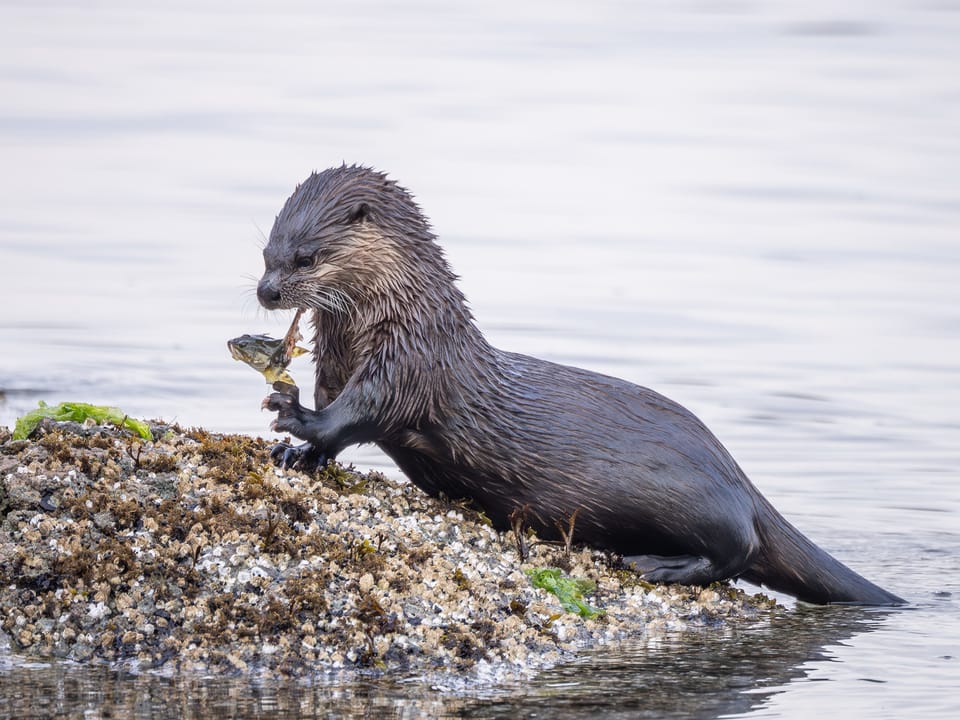EcoWest News, September 10, 2024

Welcome to EcoWest News, a weekly round-up of news and resources that you can put to use in addressing environmental issues and protecting the wild in your community.
Across the West
A historic house in Winnipeg has been transformed into a LEED Platinum-certified daycare facility. [Prairie Architects]
In Manitoba, drivers are being asked to slow down and watch out for Western Tiger Salamanders as they migrate from wetlands to burrows where they’ll be able to survive the winter. [CTV News]
A research project out of the University of Manitoba will track progress on potential net zero pathways to agricultural sustainability put forward by stakeholders in agriculture, environmental stewardship, First Nations, and academia. [UManitoba]
Once the Métis Nation of Alberta completes its bumblebee survey on its Indigenous Protected and Conserved Area east of Edmonton, they’ll develop a management plan to protect the plants the bees prefer and their nesting habitat. [CBC]
A baby boom of 86 Vancouver Island marmots is good news for this endangered species but, with a survival rate of only 15-30%, caution is required. The marmot fills a critical niche in the Island’s ecosystem that has a lower number of mammal species due to its separation from the mainland. [CBC]
Zinc and copper discharges and effluent from the shipbreaking operation at Union Bay, BC, exceed acute and chronic levels. [The Discourse]
A coal mine in northeastern BC is reopening after 24 years. [CBC]
Across Canada
A report by the Institute for Sustainable Finance estimates that “wetlands in Canada provide natural services worth approximately $225-billion annually, an amount equivalent to around 10% of Canada’s GDP”. [ISF]
McGill University’s Climate Crisis and Climate Actions course is an interdisciplinary course emphasizing individual and collective actions and incorporates Indigenous knowledge and pedagogy. [The Conversation]
Around the World
California’s Oakland Unified School District has a fully electrified fleet of school buses. Vehicle-to-grid technology allows the buses to return electricity to the grid when not in use, and the buses’ fixed schedule makes them a reliable resource for the utility. [Grist]
Logging
Logging is Canada’s third largest climate polluter with only gas & oil and transportation producing more emissions. [Nature Canada]
Unauthorized logging [The Narwhal] and limited policing [The Conversation] are endangering BC’s forests.
Transportation
A new report demonstrates that highway-widening projects don’t benefit the local economy but reducing urban roadway area by “10% would yield a net benefit of nearly $28 billion a year.” [Bloomberg]
Getting more zero-emission buses and trucks on the road could cut air pollution and boost Canada’s manufacturing industry. [Clean Energy Canada]
The Walkability website provides information on why and how to improve community walkability and offers practical tools for evaluating walking conditions. [ITDP]
Making a Difference
Our neighbours influence us more than we may realize. If you spot EVs round your neighbourhood, you may buy one too. Once a few neighbourhood houses install solar panels, others will follow. [The Conversation]
Researchers are developing tools to prevent groundwater contamination following oil spills [UWaterloo] and to remove microplastics from water [Anthropocene].
Nature’s Wonders
Meet the mountain beaver – except it’s not a beaver and it doesn’t live in the mountains. Found in BC’s coastal forest ranges, these furry creatures are hard to spot as they spend a lot of time in their network of underground tunnels. [Cool Green Science]
The winning photos in this year's Wildlife Photographer of the Year competition showcase the beauty and the challenges of the natural world, from a leaping, twisting stoat to seals taking a nap in the ice flow. [Euro News]
Photo credit: https://www.flickr.com/photos/apmckinlay/53947897610/
EcoFriendly West informs and encourages initiatives that support Western Canada’s natural environment through its online publication and the Nature Companion website/app. Like us on Facebook, follow us on Twitter or Mastodon, or subscribe by email.

Member discussion